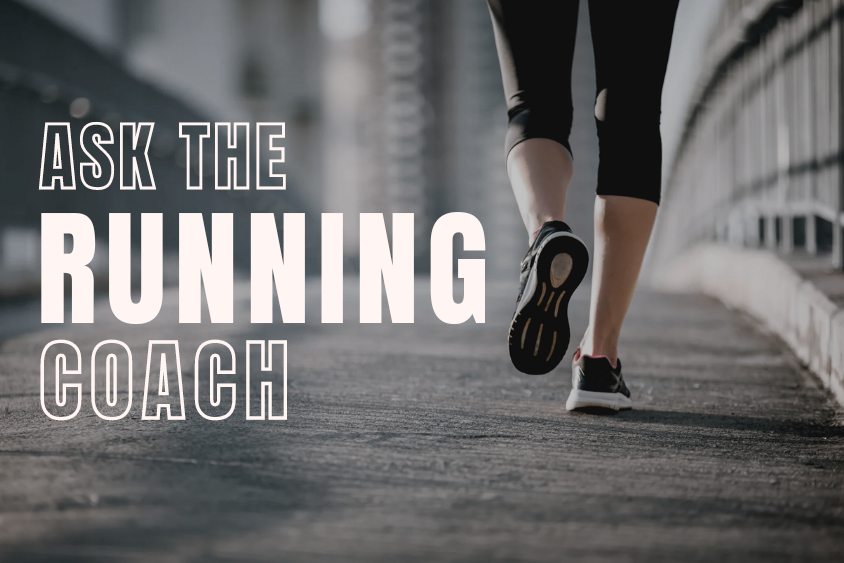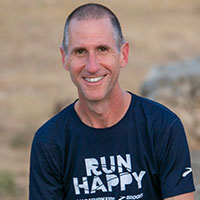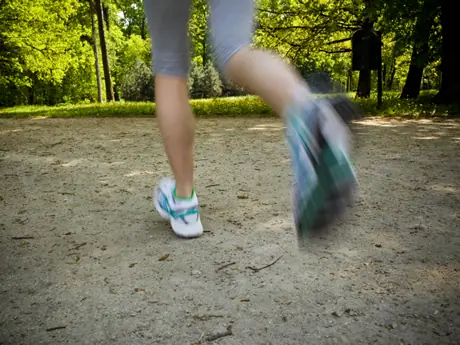
Our Certified Run Coach, Josh Janicek, addresses your burning questions! If you've ever had a question you've been dying to ask, now's your chance. Submit your queries through our Google form [here] for consideration. While we aim to make this series fun, we aim to provide valuable insights. Please note that not all questions may be answered, and for medical advice, consult your healthcare professional, not ACTIVE or Josh.
About Our Running Coach: Josh Janicek is a Road Runners Club of America Certified Run Coach based out of Austin, TX. He is a 7-time Boston Marathon qualifier, founder of an Austin-based run club and training group, and actively coaches athletes ranging from those who are new to running to competitive marathoners.
Why Trust Us?
ACTIVE.com's editorial team relies on the knowledge and experience of fitness and wellness experts including competitive athletes, coaches, physical therapists, nutritionists, and certified trainers. This helps us ensure the products we feature are of the highest standard. Collectively, the team has spent countless hours researching equipment, gear, and recovery tools in order to create the most accurate, authentic content for our readers. Customer satisfaction is also a key part of our review process, which is why we only feature products that are highly rated.
Let's dive in and get those questions answered!
Question #1: I’m in my late 40’s and recently learned I’m in perimenopause, and it was suggested that long bouts of cardio (running) are making my symptoms worse. I was told to help my hormone imbalance during this phase to give up running and focus on lifting heavy weights instead. I see so many other women my age and older running ultra marathons, so what’s the secret I’m missing to be able to keep running?
Coach Josh: I’m a male, same age as you. I’m married to a woman who is a year older than me. I coach and run with female athletes in all life phases. I can’t empathize, but I understand (to the best of my man brain). I think you and I are cut from the same cloth of stubbornness. My personal, non-medically-trained opinion would be to seek a second opinion. I see those masters women out there, too. I don’t see any reason why you can’t (or shouldn’t) continue to endeavor in a healthy activity that brings you happiness and fulfillment. I’d find a doctor who understands and appreciates that.
Question #2: How do you find your "pace"? I did it by accident once, in the middle of a race, and my pace was almost 2 min/mile faster. I wasn't tired at all for those few miles before I fell out of it, but I don't know what I did to get into it, and haven't been able to get back to it since :(
Coach Josh: You find your “pace” by chasing it for as long as your running body will let you. Your pace can and should vary for many of your runs. You can have all kinds of race paces (your pace in the mile isn’t the same as your marathon pace). Your pace is different in recovery, tempo, long, pace, threshold, and social runs. Your pace is what you need it to be. You practice running fast and far over time to teach your body to sustain your desired pace over a set distance or time.
It sounds like you found a pace that was smooth and exciting but not sustainable for the duration of the race. If you want to sustain that pace over that distance, you need to work toward that specific goal. This can be achieved on your own or with guided help from an experienced coach.
Question #3: How does one resolve the differences in training methodologies of (1) The "Norwegian Method" - Double Threshold 2 x per week versus (2) 80 / 20 of Matt Fitzgerald - 80% of miles at Zone 2 versus (3 ) "Run Less, Run Faster " - Pierce / Muir, Furman U - 3 Days per week high quality + cross training. These approaches are very different. PS - I am 70 years old, running since age 15.
Coach Josh: Nowadays, you can throw a rock and hit a different methodology. One resolves the differences in them by finding out what works best for you. You’ve been running for 55 years, so I’d reckon you’ve probably tried various methods and training programs, and some of those worked better for you than others. Social media and publications are constantly barraging us with the newest and greatest tips and tricks to the point of paralysis by analysis. For me personally, I like to keep things very simple but also very consistent. If you want to improve and continue to enjoy the sport of running, create a schedule that alternates bouts of hard and easy, and allow for ample recovery and rest days to stay healthy and happy and allow your body to absorb your training. Easy days should be easy, running at a conversational pace. Hard days can be as hard as you need or want them to be. And you can experiment with the aforementioned methodologies. Try the double threshold. On the heels of that, if you incorporate speed workouts into your running, change things up to challenge different systems. For example Do 800, 1,000, or 1,200 meter repeats one week. Then, in the next week, try 200 or 400-meter repeats at a quicker pace to call on your fast twitch muscles. And you can experiment with your rest intervals. For my athletes (and myself), Tuesday is always “Track Tuesday.” Wednesday is an easy base mileage/recovery run. Thursday is another hard run of either hills or a tempo. Then we do longer runs on the weekends. But I keep it consistent, week after week.
Consistency is key. Approaches and methodologies are like people. We’re all different. Our needs and likes can change over time, and that’s what makes this sport fun because we can always learn and change things up to keep our hobbies fun, interesting, and exciting for us.
Question #4: I am 68 years of age and in pretty poor shape and about 30 lbs overweight. I felt best when I ran during my working years. How do I even get started without getting injured?
Coach Josh:I love this question, and I have it asked of me a lot in person. You get started by starting. The hardest step is that first one out of the door. And only you can take that step. You can find support and accountability from a friend or a family member if you find that would help, but you need to be ready and willing to commit to your program.
Start slow. Start by walking. Give yourself a realistic and attainable goal. An example could be: “I’m going to walk every day for 30 minutes for the next two weeks. The fun thing about this process is that you can change your goal at any time you want. This is your program and your goal. Let’s say that after a week, you want to change your goal to be based on distance. So instead of 30 minutes, you commit to walking 2 miles. If you’re feeling good after those two weeks, adjust your goal. You can increase your time or distance. You can also start slowly incorporating running. I’d highly recommend a run/walk ratio that you're comfortable with. And keep it simple and manageable for yourself. For example, jog for 30 seconds and then walk for 60 seconds. Find the combination that works best for you, but just keep it simple for yourself so you don’t get overly stressed or discouraged with remembering your run/walk intervals. You can use a watch or plenty of smartphone apps developed specifically for run/walk interval timing.
,br/> Just remember to start slow. Remember that old saying: “Rome wasn’t built in a day.” Commit, take your time, don’t overdo it, start slow, and whatever you do, make sure you enjoy the process. Just walking outside will do wonders for your mood and mental health.
I’ll leave you with a very simple framework that I’ve personally adopted from running coach Mario Friaoli:
- Accept where you are right now
- Start there
- Don’t get ahead of yourself
- Go back to step #1
Submit your queries through our Google form [here] for consideration.
Check Out The Latest Running Socks Deals on Amazon
By clicking on the product links in this article, we may receive a commission fee at no cost to you, the reader. Sponsorships and affiliate commissions help support our research so we can help you find the best products. Read full affiliate disclosure here.
About the Author

Josh is the Staff writer for ACTIVE.com. He is a 7-time Boston Marathon qualifier, ran the Grand Canyon rim-to-rim, and have even run a couple of ultra-marathons. He is also the cofounder of one of the largest running clubs in the Austin area.
Get ACTIVE on the Go


Couch to 5K®
The best way to get new runners off the couch and across the finish line of their first 5K.
Available for iOS | Android







Discuss This Article